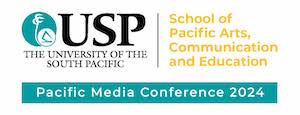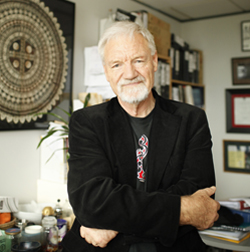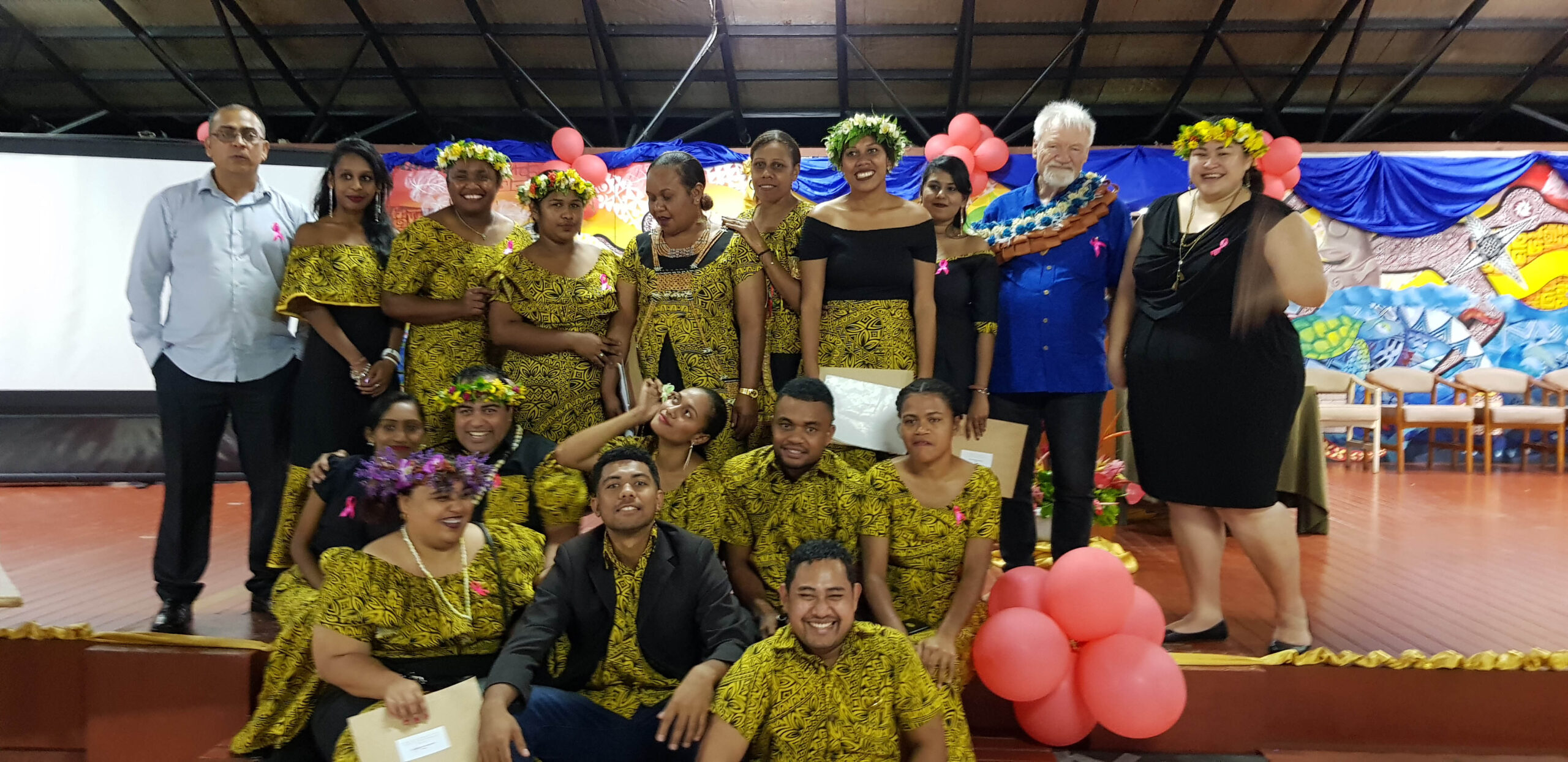By Monika Singh in Suva
New Zealand Order of Merit (MNZM) awardee Professor David Robie has called on young journalists to see journalism as a calling and not just a job.
Dr Robie, who is also the editor of Asia Pacific Report and deputy chair of the Asia Pacific Media Network, was named in the King’s Birthday Honours list for “services to journalism and Asia Pacific media education”.
He was named last Monday and the investiture ceremony is later this year.
- READ MORE: 50 years of challenge and change: David Robie reflects on a career in Pacific journalism – RNZ Pacific
- King’s Birthday Honours: Journalist reflects on work in the Pacific – PMN News
- Other reports

The University of the South Pacific’s head of journalism Associate Professor Shailendra Singh told Wansolwara News: “David’s mountain of work in media research and development, and his dedication to media freedom, speak for themselves.
“I am one of the many Pacific journalists and researchers that he has mentored and inspired over the decades”.
Dr Singh said this recognition was richly deserved.
Dr Robie was head of journalism at USP from 1998 to 2002 before he resigned to join the Auckland University of Technology ane became an associate professor in the School of Communication Studies in 2005 and full professor in 2011.
Close links with USP
Since resigning from the Pacific university he has maintained close links with USP Journalism. He was the chief guest at the 18th USP Journalism awards in 2018.

He has also praised USP Journalism and said it was “bounding ahead” when compared with the journalism programme at the University of Papua New Guinea, where he was the head of journalism from 1993 to 1997.
Dr Robie has also co-edited three editions of Pacific Journalism Review (PJR) research journal with Dr Singh.
He is a keynote speaker at the 2024 Pacific International Media Conference which is being hosted by USP’s School of Pacific Arts, Communications and Education (Journalism), in collaboration with the Pacific Island News Association (PINA) and the Asia-Pacific Media Network (APMN).
The conference will be held from 4-6 July at the Holiday Inn, Suva. This year the PJR will celebrate its 30th year of publishing at the conference.
The editors will be inviting a selection of the best conference papers to be considered for publication in a special edition of the PJR or its companion publication Pacific Media.

Referring to his recognition for his contribution to journalism, Dr Robie told RNZ Pacific he was astonished and quite delighted but at the same time he felt quite humbled by it all.
‘Enormous support’
“However, I feel that it’s not just me, I owe an enormous amount to my wife, Del, who is a teacher and designer by profession, and a community activist, but she has given journalism and me enormous support over many years and kept me going through difficult times.
“There’s a whole range of people who have contributed over the years so it’s sort of like a recognition of all of us, especially all those who worked so hard for 13 years on the Pacific Media Centre when it was going. So, yes, it is a delight and I feel quite privileged.”
Reflecting on his 50 years in journalism, Dr Robie believes that the level of respect for mainstream news media has declined.
“This situation is partly through the mischievous actions of disinformation peddlers and manipulators, but it is partly our fault in media for allowing the lines between fact-based news and opinion/commentary to be severely compromised, particularly on television,” he told Wansolwara News.
He said the recognition helped to provide another level of “mana” at a time when public trust in journalism had dropped markedly, especially since the covid-19 pandemic and the emergence of a “global cesspit of disinformation”.
Dr Robie said journalists were fighting for the relevance of media today.
“The Fourth Estate, as I knew it in the 1960s, has eroded over the last few decades. It is far more complex today with constant challenges from the social media behemoths and algorithm-driven disinformation and hate speech.”
He urged journalists to believe in the importance of journalism in their communities and societies.
‘Believe in truth to power’
“Believe in the contribution that we can make to understanding and progress. Believe in truth to power. Have courage, determination and go out and save the world with facts, compassion and rationality.”
Despite the challenges, he believes that journalism is just as vital today, even more vital perhaps, than the past.
“It is critical for our communities to know that they have information that is accurate and that they can trust. Good journalism and investigative journalism are the bulwark for an effective defence of democracy against the anarchy of digital disinformation.
“Our existential struggle is the preservation of Te Moana-nui-a-Kiwa — protecting our Pacific Ocean legacy for us all.”
Dr Robie began his career with The Dominion in 1965, after part-time reporting while a trainee forester and university science student with the NZ Forest Service, and worked as an international journalist and correspondent for agencies from Johannesburg to Paris.
In addition to winning several journalism awards, he received the 1985 Media Peace Prize for his coverage of the Rainbow Warrior bombing. He was on a 11-week voyage with the bombed ship and wrote the book Eyes of Fire about French and American nuclear testing.
He also travelled overland across Africa and the Sahara Desert for a year in the 1970s while a freelance journalist.
In 2015, he was awarded the AMIC Asian Communication Award in Dubai, United Arab Emirates.

Geopolitics, climate crisis and decolonisation
Dr Robie mentions geopolitics and climate crisis as two of the biggest issues for the Pacific, with the former being largely brought upon by major global players, mainly the US, Australia and China.
He said it was important for the Pacific to create its own path and not become pawns or hostages to this geopolitical rivalry, adding that it was critically important for news media to retain its independence and a critical distance.
“The latter issue, climate crisis, is one that the Pacific is facing because of its unique geography, remoteness and weather patterns. It is essential to be acting as one ‘Pacific voice’ to keep the globe on track over the urgent solutions needed for the world. The fossil fuel advocates are passé and endangering us all.
“Journalists really need to step up to the plate on seeking climate solutions.”
Dr Robie also shared his views on the recent upheaval in New Caledonia.
“In addition to many economic issues for small and remote Pacific nations, are the issues of decolonisation. The events over the past three weeks in Kanaky New Caledonia have reminded us that unresolved decolonisation issues need to be centre stage for the Pacific, not marginalised.”
According to Dr Robie concerted Pacific political pressure, and media exposure, needs to be brought to bear on both France over Kanaky New Caledonia and “French” Polynesia, or Māohi Nui, and Indonesia with West Papua.
He called on the Pacific media to step up their scrutiny and truth to power role to hold countries and governments accountable for their actions.
Monika Singh is editor-in-chief of Wansolwara, the online and print publication of the USP Journalism Programme. Published in partnership with Wansolwara.
This content originally appeared on Asia Pacific Report and was authored by Wansolwara.
Wansolwara | Radio Free (2024-06-10T03:17:48+00:00) Defend ‘Pacific voice’ over geopolitics, climate crisis – keep pressure on decolonisation, Robie tells Wansolwara. Retrieved from https://www.radiofree.org/2024/06/10/defend-pacific-voice-over-geopolitics-climate-crisis-keep-pressure-on-decolonisation-robie-tells-wansolwara/
Please log in to upload a file.
There are no updates yet.
Click the Upload button above to add an update.